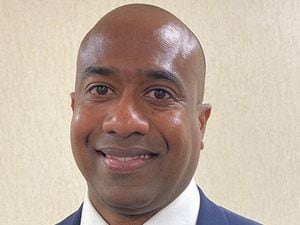English, maths and happiness: City schools to trial wellbeing lessons
It's not the usual subject on a timetable - but primary school pupils in Wolverhampton are now going to learn how to be happy.
The city will be the first in the UK to pilot an interactive online learning programme aimed at increasing their happiness.
It will be launched in three primary schools in the city on May 9 and if successful, the programme will be rolled out to 14 primaries.

The initiative is being developed by award-winning online resource Insight4Life and Wolverhampton's Big Lottery funded Headstart programme, which aims to develop resilience and wellbeing in youngsters.
The idea of the project is to tackle children's mental health issues before they reach 'crisis point', according to Gary Siva, chief executive of Insight4Life, the company behind the Zumos programme, which is already running in secondary schools across the country.
Mr Siva said the state of children's mental health in the city was 'shocking'.
"We've spoken to two local authorities who we hope to roll this out to and they've said they have had their children's mental health services budget cut by 80 per cent. That means, basically, that nobody is being seen.
"The approach should not be about dealing with a child in crisis, but learning to build their resilience, which they can take with them into adulthood."
[interruptor]

The online site will enable primary school pupils to tell the programme how they are feeling, before the site offers different areas for them to access, based on their emotions.
For example, pupils who are stressed can enter the 'chill room' where they can click on the daily positive recording.
The programme aims to give them lessons in positivity, which it is hoped will last a life time.
"The young people will be played "how to be happy" messages out loud on a daily basis which will give them positive thinking techniques and skills," said Mr Siva.
"This is teaching them life skills at a very young age which will stand them in good stead no matter what the future holds for them."

He continued: "At the very minimum, we would ask schools to read out the daily recording as a positive message to those in the class that may be feeling unhappy."
The recording could be one that asks children to think about three things that were positive that happened to them during the day.
"Even if a child has had a really bad day they should be helped to focus on something positive, even if all that is is something like 'I really enjoyed my breakfast today.'"
Access to the programme is available 24/7 for children who are issued with a log-on.
In the primary school pilot, access is monitored so that teachers and mentors can get an idea of who is unhappy and may be suffering with mental health issues.

"Unfortunately, pastoral care in schools often only have capacity to deal with the 10 per cent of children who may be showing obvious signs of unhappiness and mental health problems, such as self harm," Mr Siva said.
"This programme aims at providing support to the other 90 per cent before they reach a point of crisis.
"Research shows that 75 per cent of adult mental health problems develop by the time a person is aged 16," Mr Siva said.
"I think this project will save many children from developing these types of problems."
Gavin Hawkins, strategic lead of learning technology at Wolverhampton Council, said that Zumos was the 'perfect fit' for what HeadStart was trying to achieve.
"Zumos initially appealed to us because it is something the young people can access at any time," he said.
"We initially saw the version that is used in secondary schools and it was clearly meeting their needs, but we have worked together to develop a platform suitable for the age group we are focussing on, which is the 10 to 16 year old age group."
"The messages are a mix of subjects that young people around the country will be facing and those issues which are very specific to this area," said Mr Hawkins.
"We also like the fact that we get access to a range of statistics which give us a really good picture of what young people are worrying about and are wanting help with," he said.





